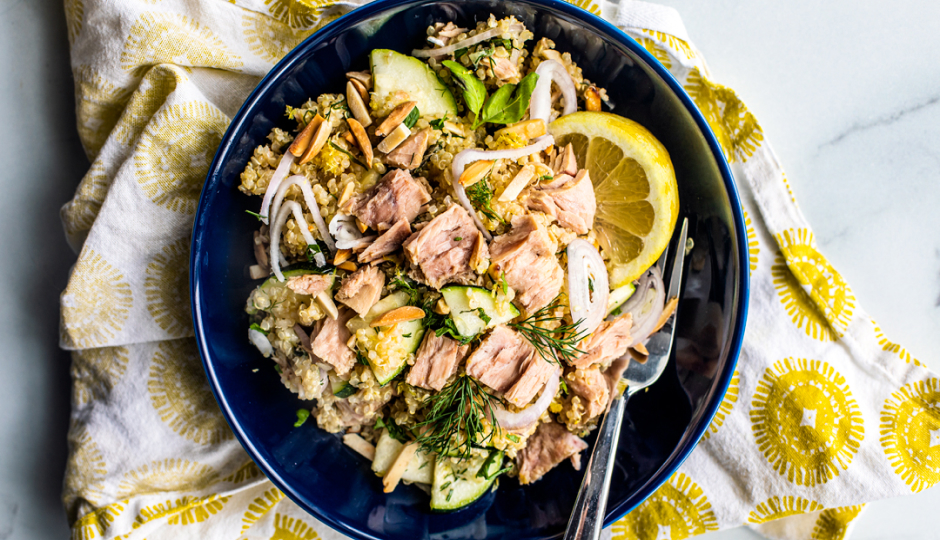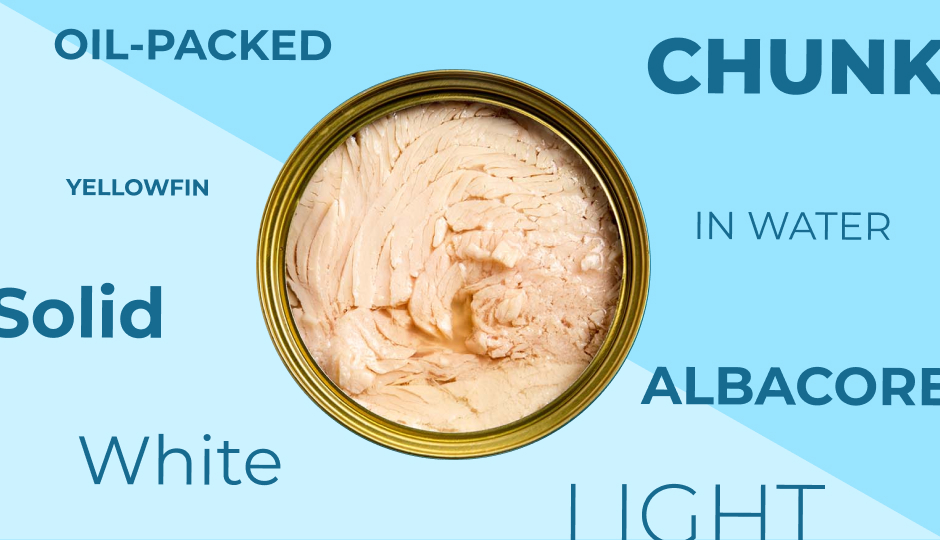Is Canned Tuna Cooked?

In this guide, we unveil the truth about your favorite seafood. Canned tuna is a pantry staple enjoyed by millions worldwide. But you’re wondering: is canned tuna cooked?
The answer is yes! During canning, the sealed cans are subjected to heat treatment, effectively cooking the tuna within. This process is carefully calibrated to achieve appropriate temperatures that eliminate harmful bacteria, ensuring the tuna is shelf-stable while retaining the taste and nutritional integrity.
In this post, we’ll dive into the canning process, nutritional value, and health considerations to uncover the truth behind this beloved seafood essential.
The Canning Process
The process for canning tuna involves several steps to ensure the seafood is shelf-stable, retains its nutritional value, and has a great taste and texture. Before the canning process even begins, there must be a careful selection and cleaning of the fish loins. Types of tuna commonly used for canning include light tuna like yellowfin tuna, and white tuna known as albacore. Yellowfin or albacore are selected based on factors like taste, texture, and suitability for the canning process. Once selected, the tuna is cleaned and fileted. This involves removing the skin, bones, and any undesirable parts to prepare the fish for canning.
Here’s an overview of the typical canning process for can of tuna:
Pre-Cooking
The raw tuna fish is pre-cooked before being placed in the cans. Pre-cooking serves multiple purposes, including improving the texture of the tuna, ensuring it reaches safe temperatures during the canning process, and enhancing the overall flavor of the final product.
Filling the Cans
The pre-cooked tuna is packed into cans, along with any additional ingredients based on the type of tuna being produced. These can include tuna packed in olive oil, water-packed, or various seasonings, depending on the product specifications.
Sealing
The cans are then sealed with a vacuum seal to prevent any contaminants from entering and to maintain the freshness of the tuna. This step is crucial in ensuring the safety and longevity of the canned product.
Heat Processing
The sealed cans are subjected to heat processing, effectively cooking the tuna within the can. This heat treatment not only ensures the destruction of harmful bacteria but also contributes to the preservation of the tuna.
Health Benefits
A simple can of tuna offers a range of health benefits. Here are some of the top health benefits cans of tuna can add to your diet:
Packed With Protein
Canned tuna is an excellent source of high-quality protein. Protein is essential for the body’s growth, repair of tissues, and overall muscle health. Including canned tuna in your diet provides a convenient and flavorful way to meet your daily protein needs.
Omega-3 Fatty Acids
Tuna, especially varieties like albacore, contains omega-3 fatty acids. These essential fats play a crucial role in heart health, brain function, and supporting the body’s inflammatory response. Omega-3 fatty acids are also well known for their cardiovascular benefits.
Vitamins and Minerals
Canned tuna features various vitamins and minerals, including vitamin D, vitamin B12, and selenium. Vitamin D is essential for bone health and immune function, while vitamin B12 is crucial for nerve function and the formation of red blood cells. Selenium acts as a powerful antioxidant, protecting the body’s cells from damage.
Weight Management
Tuna is a lean protein, which means it is relatively low in fat. Including canned tuna in a balanced diet can be beneficial for those looking to manage their weight or reduce overall fat intake. The protein content also helps promote a feeling of fullness, which can support weight management.
Convenience and Versatility
Canned tuna is a convenient and versatile food option. Easy storage and a longer shelf life compared to fresh tuna makes it a practical choice for quick, on-the-go meals. Whether added to pasta salad or tuna recipes such as tuna salad, tuna casserole or tuna melt sandwiches, it provides a quick and nutritious meal option.
Supports Muscle Health
The protein content in canned tuna is essential for the maintenance and growth of muscles. This makes it a valuable addition to the diet for individuals engaged in regular physical activity, athletes, and those looking to support muscle health, especially as they age.
Supports Brain Function
The omega-3 fatty acids found in tuna, particularly docosahexaenoic acid (DHA), are crucial for brain health. DHA is a major component of the brain, and regular consumption of tuna may contribute to healthy cognitive function.
In conclusion, the question “Is canned tuna cooked?” is resoundingly answered—yes, it is. Whether it’s chunk light or albacore, every bite of that flaky goodness has been pre-cooked during the canning process, making it delicious to eat straight from the can. So, you can ditch the worries about fresh tuna and dive into delicious tuna salad sandwiches, protein-packed pasta dishes, or creative culinary creations with confidence.


